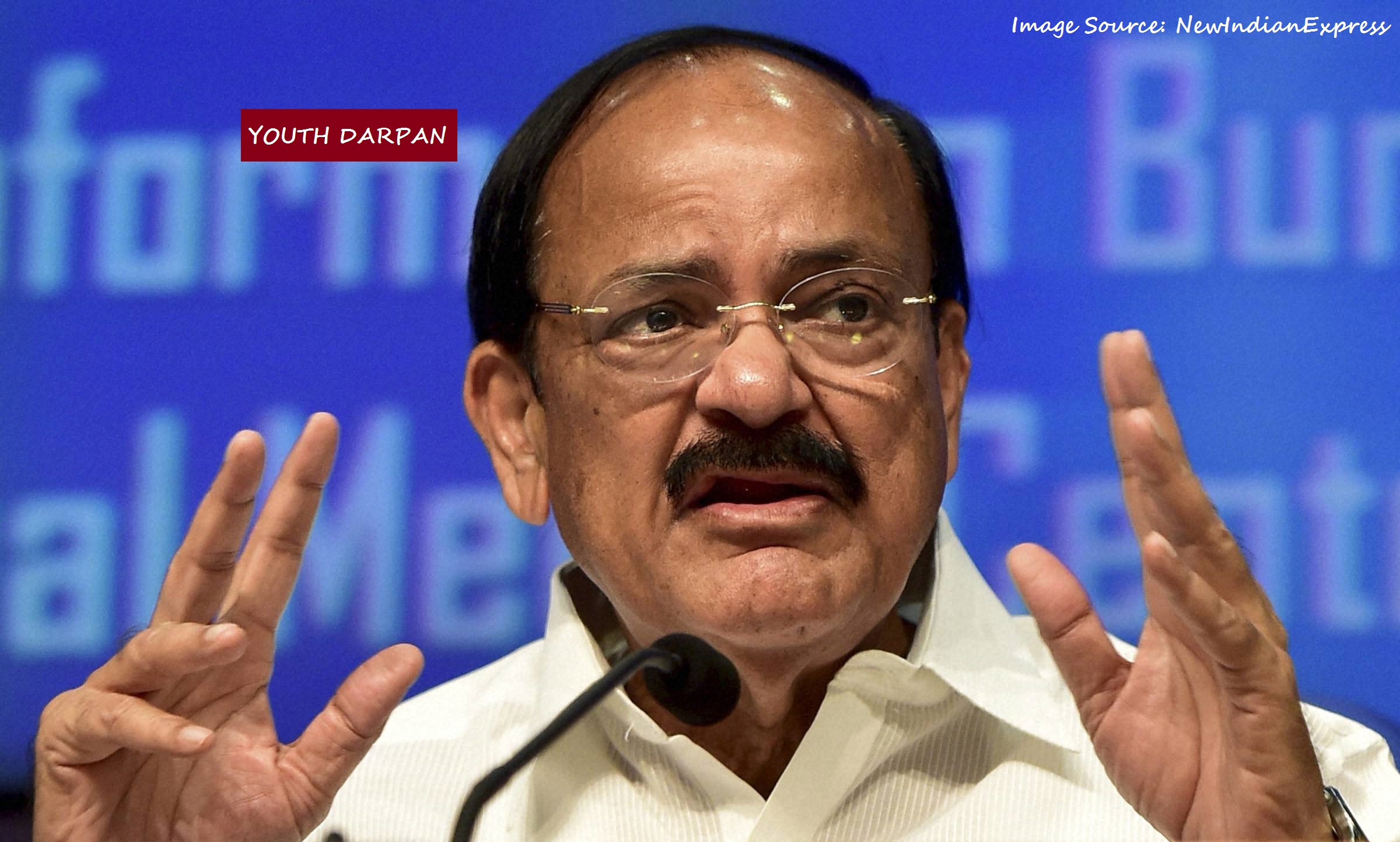The Vice President quoted Mahatma Gandhi as saying, “A nation’s culture resides in the hearts and in the soul of its people”. He further said that similarly, literature not only encapsulates the fertile imagination of the writers and poets, but also reflects the realities of a society. It holds a mirror to the social mores, culture, ills and all that is good in a society, he added.
The Vice President complimented the Sabha for having published more than 10,000 books since its formation and also for playing a key role in the publication of Assamese dictionary ‘Chandrakanta Abhidan’.
The Vice President expressed happiness that Asam Sahitya Sabha has taken up the initiative to set up Assam Cultural University as an ambitious project to conduct studies on the cultural traits of various communities in India and South East Asia. He complimented the Sabha for working on ‘Encyclopedia of the Writers of Assam’ and ‘Encyclopedia of Tea & Tea Communities of Assam’.
Following is the text of Vice President’s address:
“I am extremely pleased to participate in the Centenary Celebrations of Asam Sahitya Sabha, which has played and is continuing to play a pioneering role in the development of Assamese language, literature and culture. Indeed 100 years is a major milestone in the journey of this illustrious organization and I convey my heartiest congratulations to all those associated with the Sabha on this momentous occasion.
“A nation’s culture resides in the hearts and in the soul of its people” said Mahatma Gandhi. Similarly, literature not only encapsulates the fertile imagination of the writers and poets, but also reflects the realities of a society. It holds a mirror to the social mores, culture, ills and all that is good in a society. In other words, literature is the lifeblood of a society.
I am happy to know that Asam Sahitya Sabha was constituted with the aim of developing and enriching the Assamese language and literature and to bring all the indigenous languages under one umbrella. I am told that the other objectives of the Sabha include publishing books on folklore of Assam, dictionaries and taking up research in different areas of literature, language and culture.
I compliment the Sabha for having published more than 10,000 books since its formation and also for playing a key role in the publication of Assamese dictionary ‘Chandrakanta Abhidan’. I am told that it had also coordinated efforts to translate several important English and Sanskrit books in Assamese and that it has already published nine volumes of the World Encyclopedia in Assamese.
You are continuing a grand legacy of pioneers in the ‘Orundoi’ and ‘Jonaki’ era. You are carrying forth the spirit of the publishers of Jonaki magazine, who gave the slogan “Bhashaar bikash holehe jaateer bikash ho bo” (The nation develops only when the language develops).
Every effort has to be made to preserve and propagate mother tongues, native and indigenous languages. As I have been stating time and again, a person can articulate and express himself better when he or she speaks in mother tongue. I am not against learning English or other languages, but mother tongue should take precedence over all other languages.
In fact, I have been asking all States to teach their respective mother tongues as compulsory subjects in schools. The richness and the exact meaning conveyed by a person’s native language can never be substituted by any other language. It must be noted that language acts like a bridge and creates an emotional bonding between the people.
I am also happy to know that Asam Sahitya Sabha has taken up the initiative to set up Assam Cultural University as an ambitious project to conduct studies on the cultural traits of various communities in India and South East Asia. I compliment the Sabha for working on ‘Encyclopedia of the Writers of Assam’ and ‘Encyclopedia of Tea & Tea Communities of Assam’.
It is indeed a pleasure to honor and present awards to two of the leading personalities of Assam – senior journalist Shri G.L. Agarwalla and Col. Manoranjan Goswami. As mentioned in his profile, Shri. Agarwalla is a self-made man and pioneered the development of journalism in Assam through his media house, G L Publications. Apart from providing news to the nook and corner of Assam, he is also serving the people through his social activities which include the beautification of crematoria, creating ‘Veer Jawan Kosh’ and organizing healthcare programmes.
The other recipient of the special centenary honor, Col. Manoranjan Goswami is a noted writer and social worker. He has written over 150 short stories. He is associated with various organizations like Rotary Club, Patriotic Forum of India and Bharat Vikash Parishad.
My heartiest congratulations to the two awardees and to the Asam Sahitya Sabha on its achievements over the last 100 years. I wish you many more fruitful years of service to language, culture and the creation of a healthy, inclusive, peaceful and prosperous society.
JAI HIND!”


